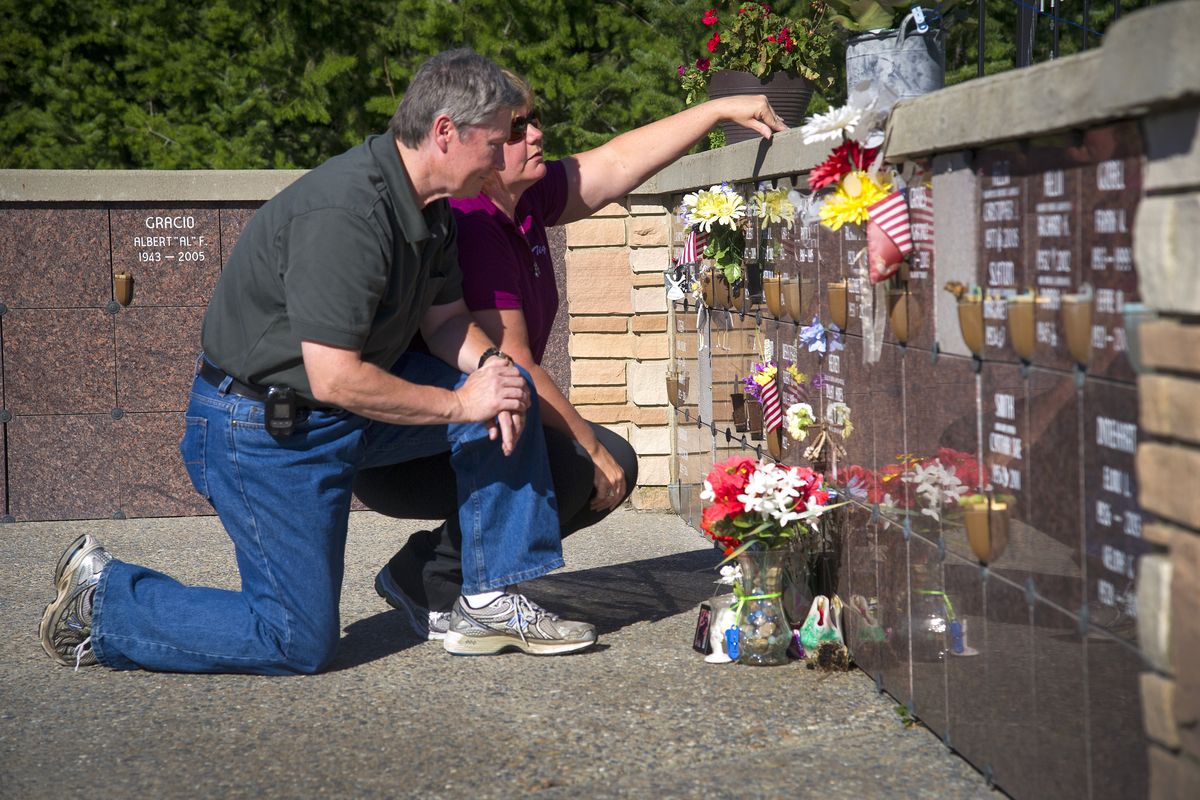A family mourns, moves forward
Heinens rely on faith nine months after tragic death of son, brother

The last time Dennis Heinen saw his 19-year-old son Dylan alive, he was bounding away from their northwest Spokane home with a friend after the pair shoveled the driveway together the evening of Jan. 28.
“I actually stood at the window and watched him,” Dennis Heinen said. “Maybe I had a premonition or something; somehow I needed to watch him, I guess.”
By dawn the next day, police were sorting through a grisly scene. Summoned to the home of 19-year-old Jeremy McVicker, officers were led to the basement where Dylan Heinen lay dead from an accidental gunshot wound to the head. A bloodied hatchet McVicker used to try to dismember the body for hiding rested on the concrete floor.
Dylan Heinen would have turned 20 this month.
McVicker said he and Heinen talked often of being “best friends for life”; now he’s sitting in a state prison on the Olympic Peninsula after pleading guilty last month to second-degree manslaughter. He’ll spend the next five years behind bars and another year with an ankle monitor for trying to hide evidence.
Meanwhile, Dennis and Donna Heinen and their three other children are left with the impossible task of coming to grips with what McVicker did in an apparent panic after realizing he’d just killed his friend.
The youngest of four Heinen children, Dylan’s face fills the living room of the family’s single-story ranch home near Joe Albi Stadium in northwest Spokane. Dennis Heinen talks about his son’s love of four-wheeling as he shows off a photo of Dylan behind the wheel of his white 1995 Nissan Pathfinder. Another photo features Dylan in his Eagle Scout uniform, standing in front of the cross he cleaned and restored at a local church for his final project. Donna points to a beaming young man beneath narrow-rimmed glasses, tousled short hair and an infant niece he adored on his lap.
“He was the big, nice kid,” Donna Heinen said, adding her son eventually outgrew his older brother, Drue, and would often drape the broad shoulders of his 6-foot-plus frame over his siblings in photos. “And I think that sometimes when you’re the nice kid, you get walked on a little bit.”
The Heinens think that’s what happened in their son’s relationship with McVicker, who they described as a shy, quiet kid who would avoid their gaze when he came over to see Dylan. The two met in middle school, according to a note McVicker penned to the Heinens from his jail cell, and instantly grew closer as football teammates.
“It’s a horrible feeling to know that my best friend is dead because of me,” McVicker wrote. “I sit and think about it all day long, every day.”
After initially telling investigating officers that Dylan Heinen had committed suicide, McVicker admitted to unintentionally firing the shot that struck Heinen in the left side of the head and killed him instantly. McVicker, Heinen and Dillon Thiemens had been drinking in McVicker’s basement bedroom before the gun, which McVicker had recently purchased, went off. Instead of phoning the police, Thiemens and McVicker stood silent for several minutes before Thiemens picked up the gun and fled the basement while McVicker retrieved the hatchet.
The medical examiner’s report said the injuries on Heinen’s neck indicated around 40 blows from the hatchet. McVicker told police he was trying to dismember the body so that he wouldn’t receive “20 years in prison,” according to sworn statements from investigators.
In his letter to Dylan’s parents, McVicker said his panicked reaction was inexcusable.
“Please believe that my actions that night do not even come remotely close to reflecting who I am as a person or how much I loved Dylan,” wrote McVicker, who told a jail counselor the night of the shooting he’d used cocaine for the second time in his life.
Donna and Dennis Heinen spoke at McVicker’s sentencing hearing Aug. 26, standing close enough to the man who killed their son that they could touch him. Both said they can’t fathom McVicker’s explanation, or how he could point a loaded gun at someone he loved, then attempt to dismember the body.
“That’s not something you do to your friend, or your best friend,” Dennis Heinen said. “That’s the thing that’s going to bother us forever, I think.”
In the letter, McVicker asks the Heinens for forgiveness he says he doesn’t deserve. Donna Heinen said she has to forgive in order to move on, a process that has been difficult. She still walks into Dylan’s untouched bedroom and smells his shirt, the scent of her youngest son lingering despite the passage of time. But her willingness to forgive isn’t open-ended.
“I can forgive him for accidentally shooting Dylan, I can do that,” she said. “And I can’t understand the rest.”
The Heinens are left with memories of their son and take almost daily trips to visit his ashes interred in a wall at Fairmount Memorial Park along the Spokane River. His plot is etched with the quote, “Are you gonna eat that?” Dennis Heinen said it was his son’s catchphrase, a mantra of a young man who loved sharing Double Stuf Oreos in the evening and who whipped up macaroni and cheese with his special touch, KFC hot sauce.
Donna Heinen hopes some good will emerge from senselessness. She hopes that McVicker will serve his sentence and live the life her son was denied. In the meantime, the Heinens are finding strength in faith and family.
“How do you move forward? You just get up, you look at the rest of your family and you thank God for the time that you had,” she said.